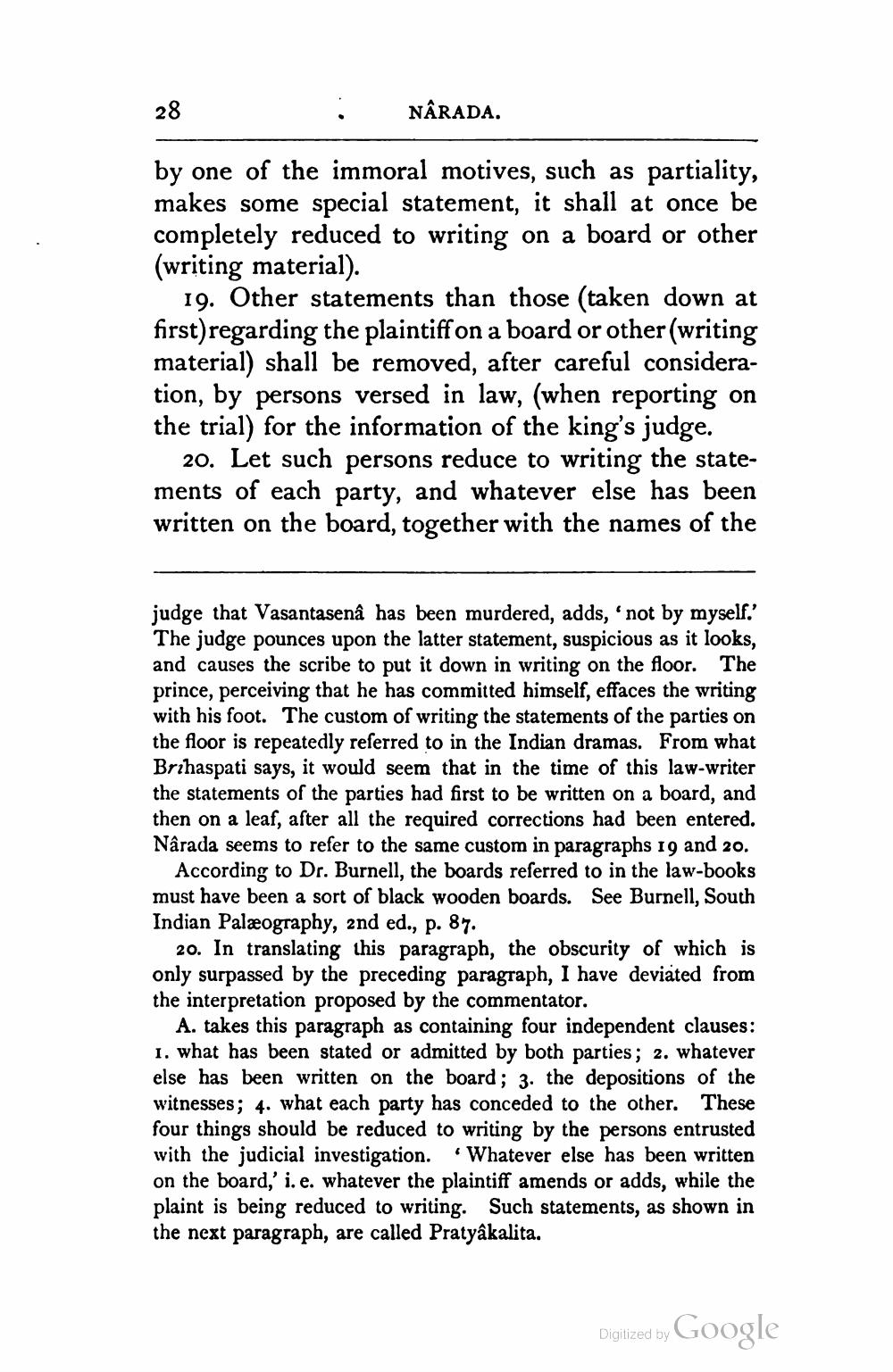________________
28
NARADA.
by one of the immoral motives, such as partiality, makes some special statement, it shall at once be completely reduced to writing on a board or other (writing material).
19. Other statements than those (taken down at first)regarding the plaintiff on a board or other(writing material) shall be removed, after careful consideration, by persons versed in law, (when reporting on the trial) for the information of the king's judge.
20. Let such persons reduce to writing the statements of each party, and whatever else has been written on the board, together with the names of the
judge that Vasantasenâ has been murdered, adds, not by myself.' The judge pounces upon the latter statement, suspicious as it looks, and causes the scribe to put it down in writing on the floor. The prince, perceiving that he has committed himself, effaces the writing with his foot. The custom of writing the statements of the parties on the floor is repeatedly referred to in the Indian dramas. From what Brihaspati says, it would seem that in the time of this law-writer the statements of the parties had first to be written on a board, and then on a leaf, after all the required corrections had been entered. Nârada seems to refer to the same custom in paragraphs 19 and 20.
According to Dr. Burnell, the boards referred to in the law-books must have been a sort of black wooden boards. See Burnell, South Indian Palæography, 2nd ed., p. 87.
20. In translating this paragraph, the obscurity of which is only surpassed by the preceding paragraph, I have deviated from the interpretation proposed by the commentator.
A. takes this paragraph as containing four independent clauses: 1. what has been stated or admitted by both parties; 2. whatever else has been written on the board; 3. the depositions of the witnesses; 4. what each party has conceded to the other. These four things should be reduced to writing by the persons entrusted with the judicial investigation. Whatever else has been written on the board,' i.e. whatever the plaintiff amends or adds, while the plaint is being reduced to writing. Such statements, as shown in the next paragraph, are called Pratyâkalita.
Digitized by Google




